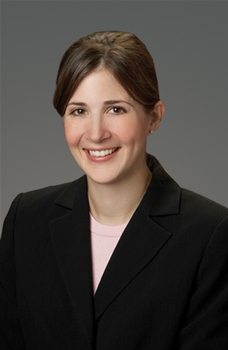 A Determination of Number of Occurrences Often Dramatically Affects the Amount of Available Insurance Coverage
A Determination of Number of Occurrences Often Dramatically Affects the Amount of Available Insurance Coverage
on February 16, 2017
An issue that often arises in insurance coverage cases, especially those involving underlying products liability claims, is whether multiple claims should be treated as a single occurrence or multiple occurrences under a commercial general liability ("CGL") policy. This determination can have a significant impact on the amount of insurance coverage available to a policyholder....
 Avoid Policy Pitfalls and Maximize Insurance Coverage for Construction Claims
Avoid Policy Pitfalls and Maximize Insurance Coverage for Construction Claims
on February 9, 2017
Insurance Companies will often raise multiple exclusions that are contained in a standard Commercial General Liability (CGL) policy to deny coverage for a claim arising from a construction project. The most frequently raised issues in construction disputes are the group of exclusions known as the "business risk" exclusions, and are designed to eliminate coverage for risks that are within the normal consequences of an insured's business activities. Although insurers tend to cite every possible exclusion as a bar to insurance coverage for construction claims, this blog will focus on the ongoing operations exclusion and how courts have interpreted the language....
 Lloyd's Leads the Way? How a Coverage Dispute in New York Could Have Far-Reaching Impacts on the Energy Industry
Lloyd's Leads the Way? How a Coverage Dispute in New York Could Have Far-Reaching Impacts on the Energy Industry
on October 21, 2016
While the American energy industry continues to undergo a cooling-off period, disputes related to insurance coverage for damages allegedly caused by fracking is heating up. Over two years ago, Brouse McDowell warned policyholders to be aware of how their first-party insurance policies may or may not respond to damages allegedly caused by fracking or fracking-related activities such as underground disposal of fracking wastewater. Now, a federal lawsuit in New York may provide guidance on whether a pollution-liability policy affords coverage for similar claims....
 Are You Afraid of the Dark? After a Power Outage, What Exclusions Might You Find Lurking In Your Policy?
Are You Afraid of the Dark? After a Power Outage, What Exclusions Might You Find Lurking In Your Policy?
on August 31, 2016
The thunder rolls, the lightning strikes and the room goes dark. There is no power and as the minutes turn to hours, your operations come to a halt and you must send your employees home. The electric company promises to restore power in 3 days, but will your company be able to bear the loss that comes with an extended power outage?...
 Ohio Court of Appeals Finds Limitation on Bad Faith Discovery
Ohio Court of Appeals Finds Limitation on Bad Faith Discovery
on April 21, 2016
It is established Ohio law that an insurer may not rely on the attorney-client privilege or the work-product doctrine in withholding documents and other information from their claims file showing a lack of good faith in settling a claim or denying coverage. Moskovitz v. Mt. Sinai Med. Ctr., 69 Ohio St.3d 638, 1994 Ohio 324, 635 N.E.2d 331 (1994); Boone v. Vanliner Ins. Co., 91 Ohio St.3d 209, 2001 Ohio 27, 744 N.E.2d 154 (2001); Squire, Sanders, 127 Ohio St.3d 161, 2010-Ohio-4469, 937 N.E.2d 533, at P 31. Beginning with the Ohio Supreme Court's decision in Moskovitz, and further clarified and expanded in the Court's decisions in Boone and Squire, Sanders, this important principle of discovery in the insurance context acts to provide insureds with information essential to their claims of bad faith—information they could not receive otherwise. The reasoning that holds these cases together is this: when an insurer and its attorney act in bad faith, their communications and any related documents are unworthy of protected status. Boone at 213. Some insurers, however, have questioned whether an insurer may avoid the production of its communications when the communications are located in an in-house attorney's files instead of the file of the assigned claims adjuster....
This Blog is intended to provide information generally and to identify general legal requirements. It is not intended as a form of, or as a substitute for legal advice. Such advice should always come from in-house or retained counsel. Moreover, if this Blog in any way seems to contradict advice of counsel, counsel's opinion should control over anything written herein. No attorney client relationship is created or implied by this Blog. © 2024 Brouse McDowell. All rights reserved.



